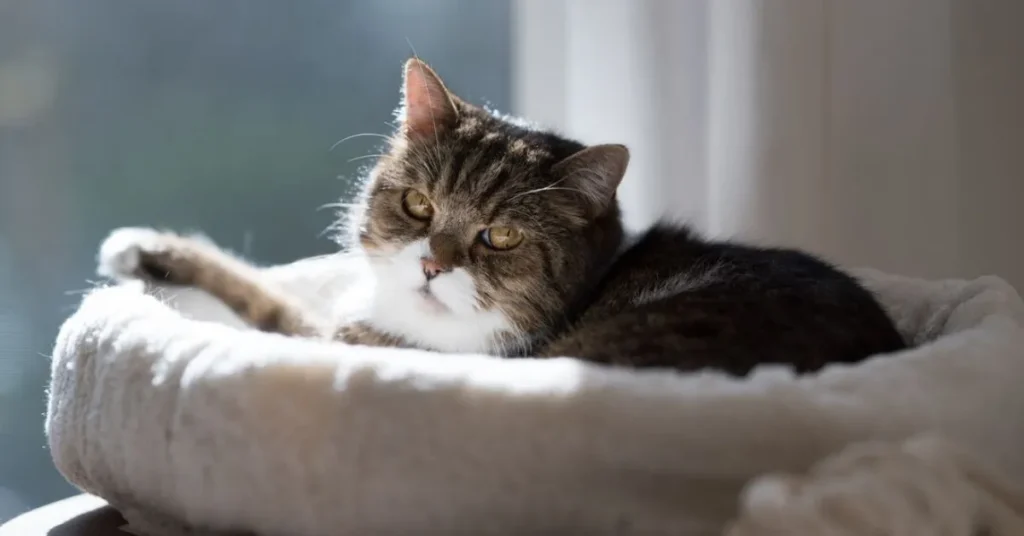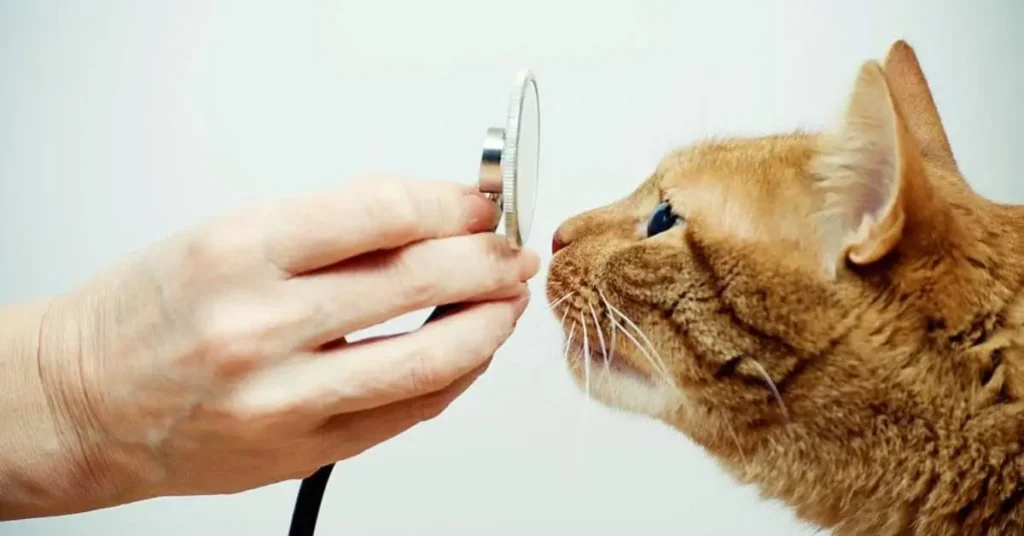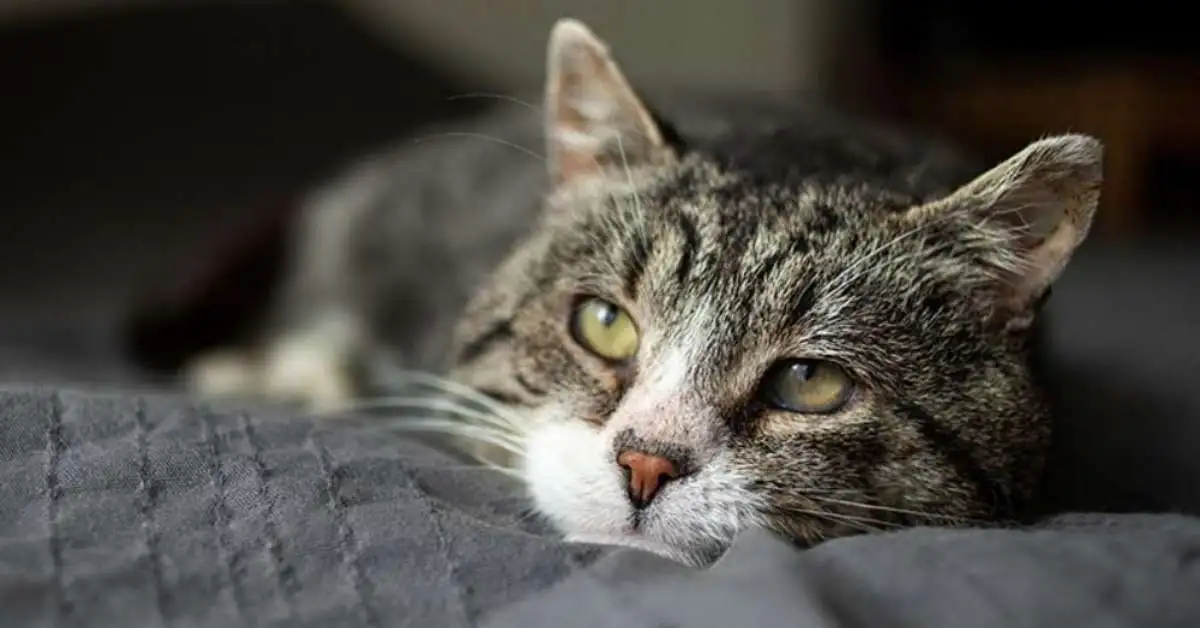Dementia in Cats
Dementia in cats is usually found in cats over 10 years of age, but it also occurs in humans. The disease often destroys the neuron system, causing cats to enter into behaviors such as confusion, disorientation, or starvation. They go and all these things affect them to a great extent. Due to this disease, the neurons or power cells inside the brain are destroyed, and due to this, they suffer from irritability and amnesia.
Further Insights and Relevant Content About Cats
Characteristics of Dementia in Cats:
| Disorientation | Cats may appear lost or need clarification in familiar places. |
| Vocalization Changes | Increased vocalization, especially during nighttime |
| Decreased Interaction | Reduced interest in interacting with people or other pets |
| Increased Anxiety | Signs of anxiety, such as restlessness, pacing |
| Memory Loss | Difficulty recognizing familiar people or objects |
| Changes in Eating Habits | Altered appetite, either eating too much or too little |
| Unexplained Aggression | Uncharacteristic aggression |

Causes of Dementia in Cats
Age-Related Change in the Brain
As people age, the brain begins to change. Like humans, cats’ brains undergo many changes as they age, affecting neurons and losing their ability to communicate effectively. Cats When the neurons begin to break down, the cat’s thinking and behavior are greatly affected.
Decreased Blood flow to the Brain
Dementia in cats reduces the efficiency of blood flow to the brain as they age, which can lead to many problems by depriving cats of oxygen and nutrients to the brain. May lead to loss of function.
Genetic factors
Some breeds are similar to each other which makes them more likely to develop functional disorders, for example, Persian cats and other breeds are more prone to things that are common in cats. Dementia becomes a disease.
Underlying health conditions
If they don’t get better or have health problems such as kidney disease or high blood pressure, older cats can become functionally impaired, affecting mental health in some way.
Symptoms of Dementia in Cats
It can be difficult to recognize because some symptoms look very similar and can be mistaken for signs of aging. But we don’t see it, and because of this, the cat faces many problems.
Disorientation
Dementia in cats can cause them to be very disoriented, which makes them feel confused or lost and some cats even forget the way to their place of residence.
Sleep Disturbances
Cats with dementia often wake up in their sleep or their bedtimes may change, such as sometimes sleeping more at night or sleeping more during the day and often purring at night. Things that indicate dementia.
Changes in Food Habits
This disease can cause them to lose interest in eating and drinking, due to which their body becomes dehydrated and their weight can also decrease to a great extent and there will be a risk of many diseases.
Aggression
Some cats may become more aggressive or irritable, especially when their affairs are disturbed, such as if they are placed while they are sleeping. Even if she is already in love, in that case, it is important to take care of her.
Diagnosis of Dementia in Cats
It is also very important because many of the symptoms can overlap with other health conditions such as physical, and dental disease, and blood tests. As they may have some diseases that can affect the brain, some doctors recommend self-examination to find out if they are suffering from the disease or not.

Treatment And Management of Dementia in Cats
There is no cure for this, but their lives can be improved by adopting some strategies.
Dietary Changes
Diet plays an important role in managing functional disorders in cats, so senior cat diets include antioxidants, omega-3 fatty acids, and other nutrients that support the cat’s brain and health. and these foods also prevent the causes of the growth of dimension.
Medications
If cats seem anxious and have dementia in cats causing them to act aggressively, we can also use medications to help calm them down. and their mental balance remains better, which allows them to remain in their best state.
Physical Exercise
Apart from this, to keep cats healthy, it is important to keep them physically fit, so they should be given physical exercise, which can prevent them from suffering from dementia and disease and enough to promote mental stimulation. It can help and physical exercise also helps a lot in preventing muscle growth, so exercising them is very important for health.
Comfort and Support
Cats with dementia often require extra care, such as assistance with getting around and easy access to food, all of which help a lot to ensure this is the case. The cat’s living environment should be safe and comfortable to avoid this disease.
Environmental Enrichment:
The environment is also supportive enough to reduce dementia in cats and avoid disorientation. Moving their mind and keeping them mentally engaged, all these things help them a lot in maintaining a constant routine and ending their restless movements and irritability, so for them. Better environment It is also important to have something that can help them relax and stay calm.
Can Cat Dementia Be Prevented?
Dementia in cats cannot be completely prevented, but certain changes in their lifestyle and lifestyle can reduce their risk, such as providing them with a proper diet and making their living space comfortable. All these things can help them a lot in survival, besides they should be given a pleasant environment so that they don’t feel irritable and they should be given good food so that there is no effect on their health and their mental health. The balance could be better if all this Dementia can be largely prevented if things are done.
Recovery and Management of Dementia in Cats:
There is no cure for this disease but we can make sure that we can control the disease and take good care of them to reduce the stress in cats’ lives. and they have to be fed well and they have to be provided with the best environment so that which they can not feel irritable and live their lives in a better way. Food at their place of residence Give them so that they do not suffer from excessive walking.
Conclusion:
Dementia in cats is usually diagnosed between the ages of 10 and 15 and causes significant forgetfulness. It is also common in humans and has no cure. can be prevented so that they can live a better life by taking better care of their living space Dementia can make them slow and irritable and often Also forget because of which they may sleep more or eat more. To get rid of this disease.







